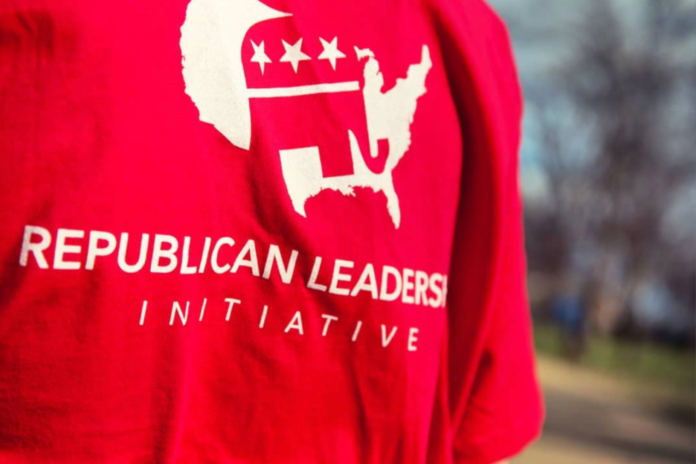Although the minority, conservatism among the youth has sparked multiple movements that have surged during the Trump presidency. But as issues arise as it pertains to morality, philosophies of conservatism are often lost to its libertarian counterpart.
As a millennial, I’ve seen the young generations struggle with confronting social issues and the culture war through the principles of conservatism. Not because conservatism bears no merit but because the winning strategy is viewed as a hands-off one.
Drugs? No government. Prostitution? No government. Pornography? No government. Rather than addressing these moral dilemmas with a conservative lens, they are defaulted to the libertarian stance in an attempt to sound reasonable and gain support from moderates and left of center thinkers.
A generation is being brought up believing morality has absolutely no place in legislation. This is not a conservative stance. It’s not even a liberal one. All you hear on the Democratic debate stage and the House floor are moral appeals to healthcare, wealth distribution, climate change, and abortion. A major difference between conservatism and libertarianism is how we view rule of law and morality.
Libertarians and many modern “conservatives” argue that morality in government is inevitably a theocracy. This is merely another instance where nuance is punched square in the face when it rears its inconvenient head. This type of all or nothing mindset to moral legislation is completely oblivious to the fact that Western culture along with America’s founding and current system operates under a moral code. We are not a theocracy, nor should we be, but we use moral discretion when it comes to the gradations of governing various areas of life.
We are constantly legislating on the basis of moral guidelines. We have obscenity laws, we have age limits on certain goods and services, and murder and theft are examples of illegality based on immoral behavior. To pretend that government has no authority or purview to regulate on the grounds of morality is not only baseless but counterintuitive to creating a just society. Moral law has been a cornerstone of the American founding and continues to be a vital part in self-governance.
As a people of self-governance, we are always riding the line of moral regulation and individual liberty. That line must be preserved. You cannot have a society with complete top down moral control just as you cannot have a society consumed by anarchy. The immoral shortfalls of man do have consequences to the collective; legislation is always determining the cost benefit ratio of immoral action and freedom. Yes, this is dicey territory. It’s the same argument used to advocate for hate speech laws. However, the cost of “hate speech” does not outweigh the benefits of unregulated speech. People’s feelings are not of dire consequence.
On the other hand, you have laws that prohibit obscene acts in public. This is because the cost to the collective that is using a public space in which the immoral behavior is displayed does in fact outweigh the benefit or “right” of that person to enact said obscene behavior. Morality in governance is a practice of measurement and nuance. Without legislating morality, the common good suffers.
I can already hear the objections now – “But common good and morality are subjective. Many radical policies are advocated for the ‘common good.’” A simple yet effective rebuttal to this argument is that if universal good and morality were purely subjective, neither would exist. Yes, there are people who impose their own subjective viewpoint when it comes to the common good and morality, but this does not negate the fact that objective morality does indeed exist. Again, we legislate morality all the time that is not inhibited by an arbitrary standard. For instance, the President recently signed a bill making animal cruelty a federal crime (whether it should be a federal crime or not is beside the point that we all think harming animals is morally abhorrent).
Conservatives and liberals alike accept that morality plays a role in governance to an extent. No one is advocating for a theocracy, but our differences do lie with our cost benefit analysis of common good and moral behavior. Conservative philosophy aims to extend individual liberty as much as humanly possible while limiting immoral behavior that leads to unignorable adverse consequences to society at large. There is no conservatism without social conservatism. One cannot ignore the traditional moral values that built our nation along with the principles of the Constitution we have promised to conserve.
Trading in the moral and social aspects of conservatism for libertarian leanings in order to create a more appealing modern “conservatism” for the misguided sense of inclusion and convenience is a mistake. Morality in government has a time and a place in order to establish a society of decency that also allows liberty to thrive. The day that the new generation of conservatives refuses to uphold the moral convictions of the ideology in which they claim homage to is the day true conservatism dies.
_____________
Listen and Subsribe the the Alyssa Ahlgren Podcast: Be A Voice
Alyssa Ahlgren
Alyssa has her Bachelor’s in Business Administration and currently works as an analyst in corporate finance. She grew up in northern Wisconsin and is a former collegiate hockey player. Alyssa is pursuing her passion for current events and politics through writing and being an advocate for the conservative movement.


















